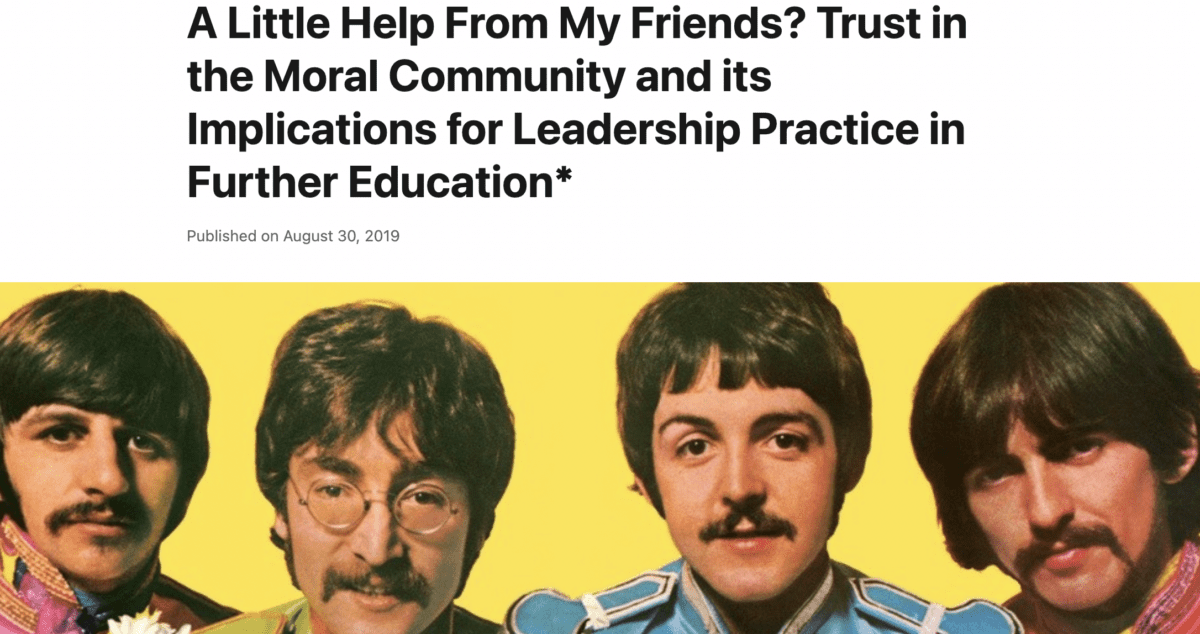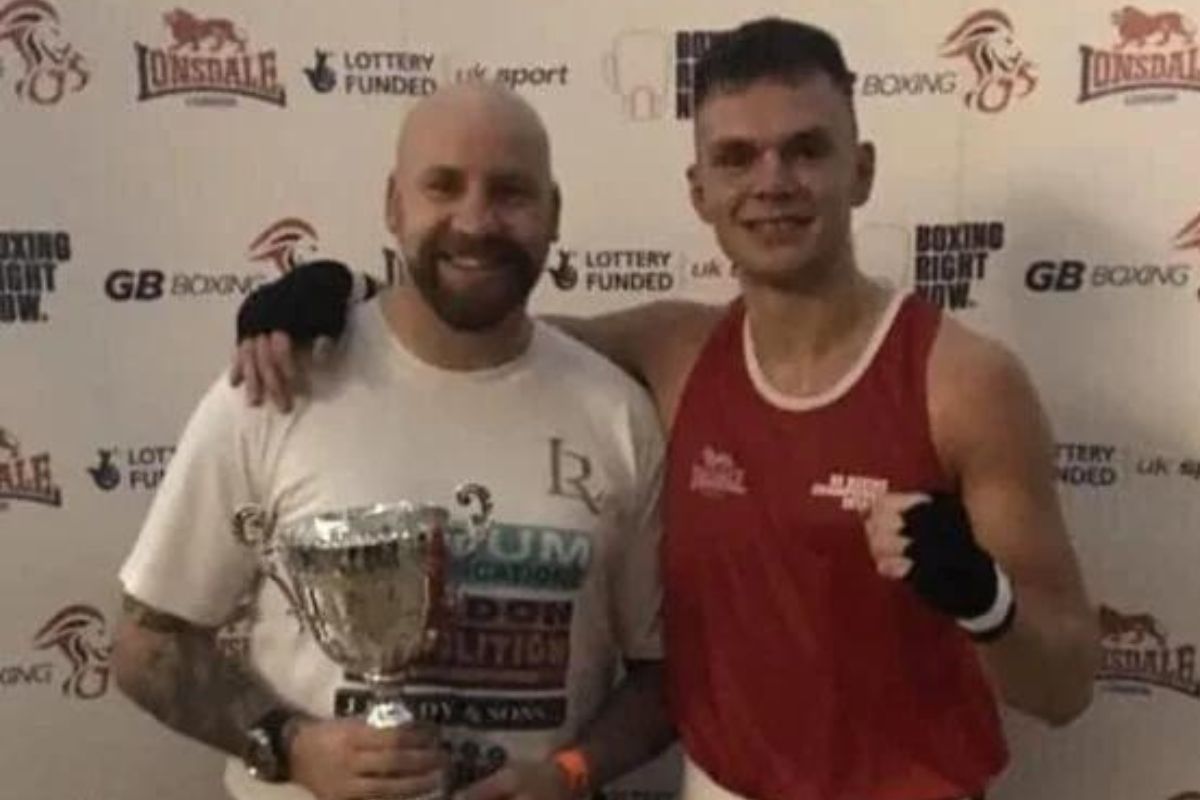Trust – a transmissible good

Pretty much everything to do with morale, wellbeing and performance in FE organisations can be attributed to trust, so why don’t we talk about it more often?
Can we really not face up to the fact that trust is as rare as hens’ teeth in some places? That the inequality of our hierarchies and line management processes means that trust finds it difficult to thrive?
Perhaps we do know it, and we don’t know how to fix it.

I’ve been inspired for a long time by Dr Christina Donovan’s work on trust and mistrust in FE. In her 2019 provocation to the ReImagineFE conference at Birmingham City University, with a little help from the Fab Four, Christina posed Kate Pickett and Richard Wilkinson’s question,
“Imagine…living somewhere where 90% of the population mistrusts each other, and what that must mean for the quality of everyday life.”
Yeah ok. Actually we don’t need to imagine…in FE we are already there.
As I travel up and down the country, working with staff at all levels of the hierarchy in FE providers, that’s what I hear: that trust is the scarcest resource we have. I hear it everywhere, so I’m not pointing the finger at anyone in particular; we are where we are and no-one knows how to fix it (hint: manage projects not people). As Christina’s research shows and the excellent work of Erika James and Lynn Perry Wooten in their recent book, The Prepared Leader, underlines; trust works both ways.
It also has three dimensions:
- Transparency and integrity of mutual communication.
- A strong sense of contractural obligation between you.
- Do you believe that others have the competence to get things done?
(Here’s another hint: the other thing I hear most commonly is that organisations have issues with communication.)
Something that leaders don’t always grasp is that loyalty to an organisation has its limits: indeed, my wonderful former boss and mentor Gina Hawkins gave me the best leadership advice I’ve ever received: don’t put your trust in organisations.
Trust is something that happens between individual humans and it can’t be complianced in, it has to be earned.
Christina Donovan yokes trust with ‘transformation’, an over-used concept in our sector and one which is too often applied to individuals in a Britain’s Got Talent* sort of way. Christina uses ‘transformation’ differently, to mean ‘making change’ – and argues that where mistrust is endemic, trust can only be nurtured by committing to doing something different. This transformation, once actioned, leads to unity, as people begin to gather around the new initiative. The organisation begins to thrive again, leading to greater hope and optimism.
I’ve been working explicitly with trust-forward models of culture change (such as the Thinking Environment) ever since I encountered Christina and her work. And I had a lightbulb moment the other day, my post-pandemic sensibility awakened by a visceral metaphor: that of virus transmission.
I was privileged to be part of a conversation where an FE lecturer was reflecting with humility about their experience of carrying mistrust with them, from one organisation to another. Their previous hurts were so deep that they entered the new workplace ‘armoured’ (as shame researcher Dr Brené Brown would say), too afraid to be vulnerable or, as Brené puts it, ‘awkward, brave and kind‘. Whatever the conditions of the workplace, the armour makes damn sure that trust won’t grow.
Mistrust becomes endemic when we carry it pan-organisationally, from one place to another, and we’re not going to blame the victim here so we need to stop those hurts happening in the first place. We have to stop enacting power over each other and calling it line management.
In a metaphor attributed to the late Desmond Tutu, as well as doing trust-forward work we also need to recognise that there’s no use trying to rescue some folk once the damage is done. FE needs us all to walk back up the river, to stop people getting thrown in.
*Where the back story is more important than the performance.












Responses